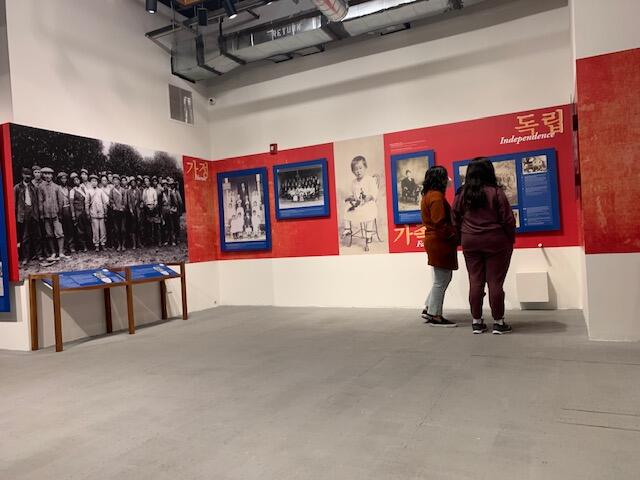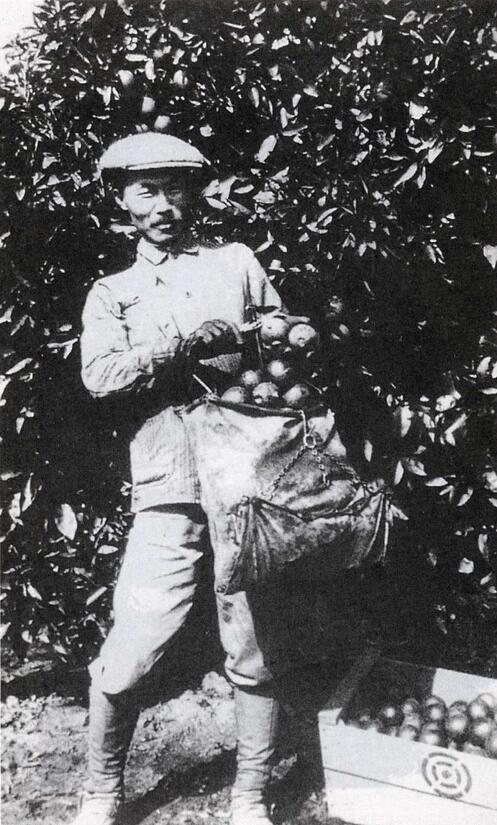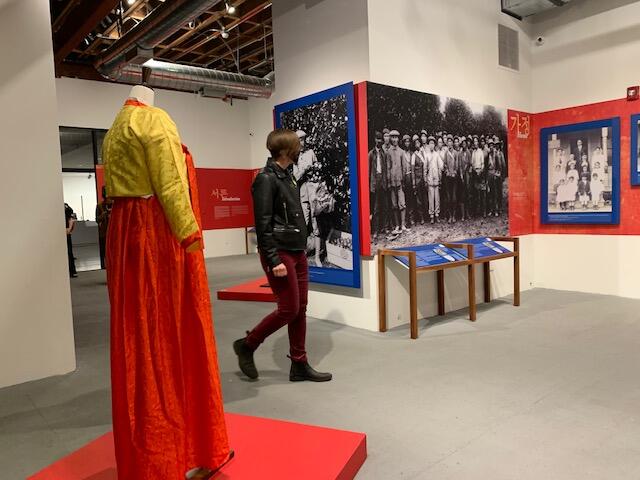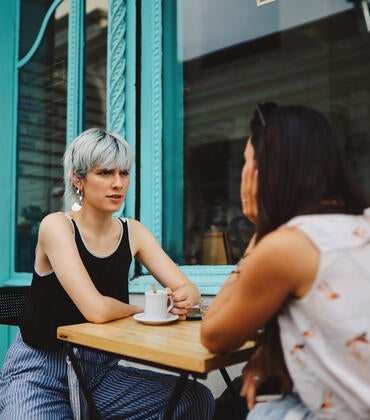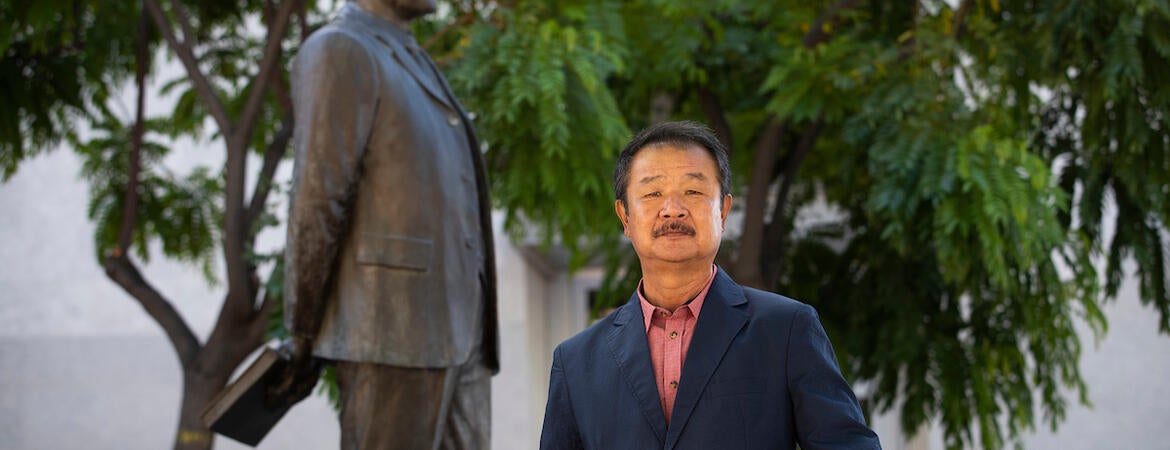
A slice of Korean American history will become a traveling, tangible experience that communities across the United States can experience.
An $850,000 Mellon Foundation Humanities in Place grant will allow UC Riverside to preserve and share history of America’s first Koreatown — Pachappa Camp — a community of Korean migrant workers in Riverside who contributed to the city’s citrus development. Among those workers was Korea’s most influential independence activists, Dosan Ahn Chang Ho, who helped foment Korea’s democratic movement.
“Given historic prejudice and disturbing recent increases in violence directed against Asian American and Pacific Islander communities, there is an acute need to increase public awareness about Asian American history, achievements, and the ongoing fight for civil rights,” said Edward Chang, ethnic studies professor and founding director of the Young Oak Kim Center for Korean American Studies at UCR who will lead this project. Chang is also the author of the book “Pachappa Camp: The First Koreatown in the United States,” published in 2021.
The traveling exhibition will include collaborations with a consortium of Asian American and civil rights groups based in Riverside, including Save Our Chinatown Committee, The Harada House Foundation, Americas Dosan Anchangho Memorial Business Association, and the Civil Rights Institute of Inland Southern California. Exhibitions will be presented along with national Korean American community organizations in Washington, D.C., Chicago, San Francisco, and New York.
This traveling museum is born from a three-month “Pachappa Camp: The First Koreatown in the United States” exhibition hosted by UCR ARTS in October 2021.
Mellon’s three-year grant will allow Chang to kick off the programing in San Francisco beginning late 2024.
“Professor Chang’s work is exceptional, and we are grateful for Mellon's continued partnership with UCR, which funds the essential research of our scholars in the arts, humanities, and social sciences,” said Daryle Williams, dean of UCR’s College of Humanities, Arts, and Social Sciences. “Professor Chang’s research on the Korean American community will elevate this much needed history. The traveling exhibition will offer communities an opportunity to learn, connect, and grow from this country’s rich narrative — in this case, history that began here in Riverside.”
Williams will provide strategic counsel for the overall project, including the digital exhibition component. Williams is the co-creator of Enslaved.org, an online database that allows the public to search for names and stories of people brought to this country as slaves, as well as the perpetrators of the slave trade.
Chang said finding these critical slices of Korean American history, and now highlighting them at a national level, is something he had not expected, he said. He has been researching Korean American history for more than 30 years, but it wasn’t until 2016, when two visiting Korean graduate students helped him translate documents from old Korean to modern Korean language, that he understood the significance of Ahn’s presence in Riverside.
Ahn worked in Riverside’s citrus groves. He and other Korean migrant workers lived in Pachappa Camp, a name that comes from what was then named Pachappa Avenue — a settlement in a segregated part of Riverside, with no electricity or running water.
Pachappa Camp was initially known as Dosan’s Republic and was founded sometime in late 1904 or early 1905. Ahn lived in Riverside for more than five years, between 1904-1907 and 1911-1913, then moved his family to Los Angeles in late 1913. Chang said most history books only include Ahn’s history from 1911 and forward.
While in Riverside, Ahn established the Cooperative Association, known as Gongnip Hyop Hoe, which Chang says led to the idea of establishing the New People’s Association in Korea. During the early 1900s Riverside was one of the wealthiest cities in California. Koreans came from San Francisco, Hawaii, and other parts of the country to work in the citrus groves and also found homes in Redlands, Claremont, and Upland.
Among his accomplishments in Riverside, Ahn created the Korean Labor Bureau; the Korean National Association of North America, Riverside chapter; the HeungSaDan or Young Korean Academy, an association he later founded in San Francisco in 1913 to develop leaders for an independent Korea; and in 1911 the Korean National Association of North America held its National Convention.
Ahn kept the community focused not only on prosperity, but also on supporting democratic changes in Korea. In the early 1900s Korea was ruled by a monarchy and eventually came under Japanese rule in 1910.
“People tend to ignore Riverside or make it a footnote; but people should remember that Riverside was one of the most important historical sites of early Korean American history and pay tribute to our labor,” Chang said.
Chang said he is particularly interested in sharing the history of Pachappa Camp with youth as a way to bring back history that has been intentionally omitted from textbooks, he said.
“A lot of people are expressing interest in this story, which was previously unknown,” said Chang, whose Young Oak Kim Center is the only Korean American Studies center in a major U.S. university. “Storytelling is so important to this process. I’m already getting calls from Korean American schools who want to learn about Pachappa Camp, who want their students to understand Korean American history and what it means for their own identity.”
